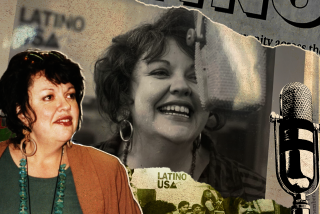Radio Marti Broadcasts to the People of Cuba
- Share via
The Times editorial (Sept. 18), “New Look at Cuba,” makes, in passing, an unfortunate link between the launching of Radio Marti broadcasts to Cuba and the breakdown of the 1984 immigration agreement on the repatriation by Cuba of criminals and mentally ill persons who came to the United States in the Mariel exodus in 1980.
I would like to set the record straight about the Radio Marti program of the Voice of America.
Bipartisan discussion of and support for special radio broadcasts to Cuba pre-dated the arrival on our shores of the Mariel boat people. In fact, these bipartisan discussions pre-dated the Reagan Administration by at least 10 years. When the initial U.S.-Cuban immigration talks took place in December, 1984, Radio Marti had already been law one year. The Cuban government could have raised the issue of Radio Marti then, but chose not to.
Radio Marti was created to offer Cubans an uncensored voice. Broadcasting 17 1/2 hours daily, 7 days a week, Radio Marti offers news and news analyses; commentaries; interviews on current events; and programs of readings, interpretations and dramatizations from works currently banned in Cuba, including former Cuban political prisoner Armando Valladares’ prison memoir, “Against All Hope.”
In testimony Sept. 24 before the House Foreign Affairs Subcommittee on International Operations, Armando Valladares said, “Every exiled Cuban I have spoken to listened to Radio Marti when they were in Cuba,” adding that Radio Marti’s news and informational programs are reaching young people in Cuba.
Radio Marti penetrates the information void that exists in Cuba today and provides an uncensored voice to the Cuban people.
JOSEPH O’CONNELL
Acting Director
Office of Public Liaison
U.S. Information Agency
Washington
More to Read
Sign up for Essential California
The most important California stories and recommendations in your inbox every morning.
You may occasionally receive promotional content from the Los Angeles Times.












